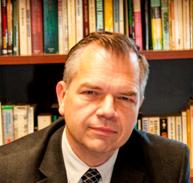Soren Kierkegaard, the Danish philosopher, once wrote that life is lived forwards, but understood backwards. True and this has been said with different variations over time. This reminds me of E. H. Carr, who wrote in What is History? that, “The past is intelligible to us only in light of the present; and we can fully understand the present only in light of the past.” [55].
So, to understand ourselves we need to be excellent self-reflectors. This notion applies in particular to understanding and working through our own calling. Each person is called by God to a unique and specific task that should form the compass of their existence, provide a sense of meaning and lead to being on purpose in both life and work.
The anchor, the central feature of any Christian, should be their clear sense of calling. There are two aspects of calling. First, there is the general call of all Christians to follow the dictates of Christ, biblical principles and a life worthy of the calling. As Paul notes in 2 Timothy 1:9, “He has saved us and called us to a holy life…” Second, there is the specific and personal call of each Christian. We have each been uniquely and specifically called based on various factors. What is your gifting? God does not call us to that for which we are not suited. What is your temperament? God does not call people who do not have the proper disposition.
While we strive to live out our calling, we cannot, of course, control events—but we can and must learn from them. God in His divine mercy will organize events that prepare us to accomplish things that we don’t even know we will be doing in the future.
Have you ever had the circumstance where things happened to you and you didn’t see the point of it? Have you ever had tough circumstances that caused great character growth, were painful, and you wondered about the point of it. Have you had business challenges that were financially devastating and then you wondered whether you would make it out the other end?
We need to be certain that we learn from our own experiences. We need to be able to reflect carefully on our experiences to better understand our calling. One excellent guide to self-reflection is provided by Donald Schon, an American author, wrote a seminal 1983 book called, The Reflective Practitioner. Schon believed that people and organizations should be flexible and incorporate their life experiences and lessons learned throughout their life.
Schon’s concept of “reflective practice” focused on the capacity to reflect on action so as to engage in a process of continuous learning. A key rationale for reflective practice is that experience alone does not necessarily lead to learning. Instead, there must be deliberate reflection on experience. People who reflects throughout their lives are not just looking back on past actions and events, but are taking a conscious look at emotions, experiences, actions, and responses, and using that information to add to their existing knowledge base and reach a higher level of understanding.
We may experience challenges situations and we do not understand how they fit into God’s calling in our lives. In God’s Providence, many times these events are transpiring to prepare use for some future opportunity. We don’t realize it at the time and we are not able to get the perspective on the immediate circumstances to see the heavenly purpose that can be accomplished through these challenges.
While no one would wish tragedy on themselves or others, there are often life-changing outcomes. Statistics show that a high degree of social workers come from a background where they have experienced direct tragedy in their growing-up years, sometimes the suicide of a family member or an unexpected death. Often these circumstances will have the impact that the person so impacted by a personal tragedy becomes empathetic to those going through similar circumstances.
In other cases, perhaps you have had a career disruption. Perhaps you have been working at a job and then unexpectedly get terminated. You then get the shock of the news, then have to gather yourself and your thoughts, then recalibrate and move on. You perhaps look to get yourself retrained, not knowing what the future might hold. You then get an opportunity, that you hadn’t anticipated, but which you realize you are perfectly suited for based on your unique background.
The bottom line for Christians is that in order to understand their calling fully they need to be good self-reflectors, to understand how God has worked in their lives in the past, and how He can continue to do so in the future. The past will reveal what has and has not worked and lessons to be learned. All of these experiences will form that foundation for the future exercise of one’s calling.
